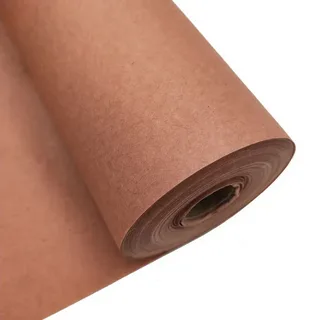In today’s environmentally conscious world, businesses across industries are seeking sustainable packaging options to reduce their ecological footprint. For food service providers, butcher shops, and other industries dealing with perishables, eco-friendly custom butcher paper presents a practical and versatile solution. This article explores the benefits of eco-friendly custom butcher paper, its sustainability features, and its role in enhancing branding while supporting environmental goals.
What Is Eco-Friendly Custom Butcher Paper?
Eco-friendly custom butcher paper is a specialized type of packaging paper designed to be biodegradable, recyclable, or compostable. It is used to wrap and protect meats, fish, and other perishables while maintaining their freshness. Unlike traditional butcher paper, eco-friendly versions are crafted using environmentally responsible materials and processes, reducing harm to the planet.
This type of paper can be customized with logos, patterns, or designs, making it a dual-purpose packaging solution that combines functionality with branding.
Why Choose Eco-Friendly Butcher Paper?
Switching to eco-friendly butcher paper offers numerous advantages for businesses and the environment. It allows companies to align with consumer preferences for sustainable products while maintaining the quality and safety of their packaging. Additionally, this packaging alternative minimizes waste, promotes recycling, and reduces greenhouse gas emissions associated with non-sustainable materials.
Eco-friendly butcher paper is free from harmful chemicals, such as plastic or synthetic coatings, ensuring it remains safe for food contact. This makes it an ideal choice for businesses in the food industry looking to meet safety and environmental standards.
Benefits of Using Custom Eco-Friendly Butcher Paper
1. Sustainability
One of the primary benefits of eco-friendly butcher paper is its sustainability. Made from renewable resources such as wood pulp, it breaks down naturally, contributing to a circular economy. Businesses using this paper can significantly reduce their environmental impact while aligning with global efforts to combat plastic waste.
2. Customizable Branding
Custom butcher paper allows businesses to add logos, colors, and patterns, enhancing brand recognition. A simple yet effective branding tool, it communicates a commitment to sustainability while elevating the customer experience. Eye-catching designs can also differentiate products in competitive markets.
3. Food Safety and Freshness
Eco-friendly butcher paper is designed to keep food fresh without compromising safety. It effectively resists moisture and grease, making it suitable for wrapping meats, cheeses, and other items prone to leaks or contamination. The paper’s breathability ensures that food remains fresh for longer periods.
4. Cost-Effective Solution
Despite its eco-friendly credentials, custom butcher paper is an affordable packaging solution. Businesses can benefit from bulk purchasing and simplified recycling processes, which lower costs over time. Additionally, its lightweight nature reduces shipping expenses.
5. Improved Customer Perception
Consumers increasingly prefer businesses that demonstrate environmental responsibility. By adopting eco-friendly butcher paper, companies signal their commitment to sustainability, fostering customer trust and loyalty. This can result in a positive brand image and a stronger competitive edge.
How to Choose the Right Eco-Friendly Custom Butcher Paper
When selecting eco-friendly custom butcher paper, consider the following factors:
1. Material Composition
Look for paper made from sustainably sourced materials, such as FSC-certified wood pulp. Avoid products containing plastic or synthetic coatings that hinder recyclability.
2. Customizability
Choose suppliers that offer customization options to incorporate your branding elements. Ensure the printing process uses non-toxic, eco-friendly inks to maintain sustainability.
3. Thickness and Durability
Consider the thickness of the paper based on your specific needs. Heavier meats may require thicker paper, while lighter products can use thinner options. Ensure the paper provides adequate protection without unnecessary bulk.
4. Certifications
Verify that the paper meets industry standards for food safety and environmental responsibility. Look for certifications such as FDA compliance for food contact and compostability certifications for eco-friendliness.
Applications of Eco-Friendly Custom Butcher Paper
Eco-friendly custom butcher paper is highly versatile, with applications extending beyond meat wrapping. It is widely used in the following areas:
- Foodservice and Restaurants: For wrapping sandwiches, burgers, and takeout items.
- Delicatessens and Bakeries: As a liner for food trays or wrapping baked goods.
- Retail Packaging: For gift wrapping or as decorative filler in sustainable packaging boxes.
- Crafts and DIY Projects: As an eco-friendly alternative for creative and artistic uses.
Making the Switch to Sustainable Packaging
Transitioning to eco-friendly custom butcher paper is a straightforward process that delivers long-term benefits. Partnering with a reliable supplier ensures access to high-quality, customizable paper that aligns with your business goals. Educate your team and customers about the switch to foster a sense of shared responsibility in promoting sustainability.
Businesses can also use the transition as a marketing opportunity by highlighting the positive environmental impact of the change. Social media campaigns, in-store signage, or packaging inserts can help communicate your commitment to sustainability.
Conclusion: Eco-Friendly Custom Butcher Paper for a Greener Future
Eco-friendly custom butcher paper is more than just a packaging choice; it’s a step toward a greener and more sustainable future. By adopting this solution, businesses can enhance their branding, meet consumer demands for eco-conscious products, and reduce their environmental impact. Whether you’re a butcher, restaurateur, or retailer, eco-friendly custom wax paper offers a practical and impactful way to prioritize sustainability while maintaining product quality and customer satisfaction.
